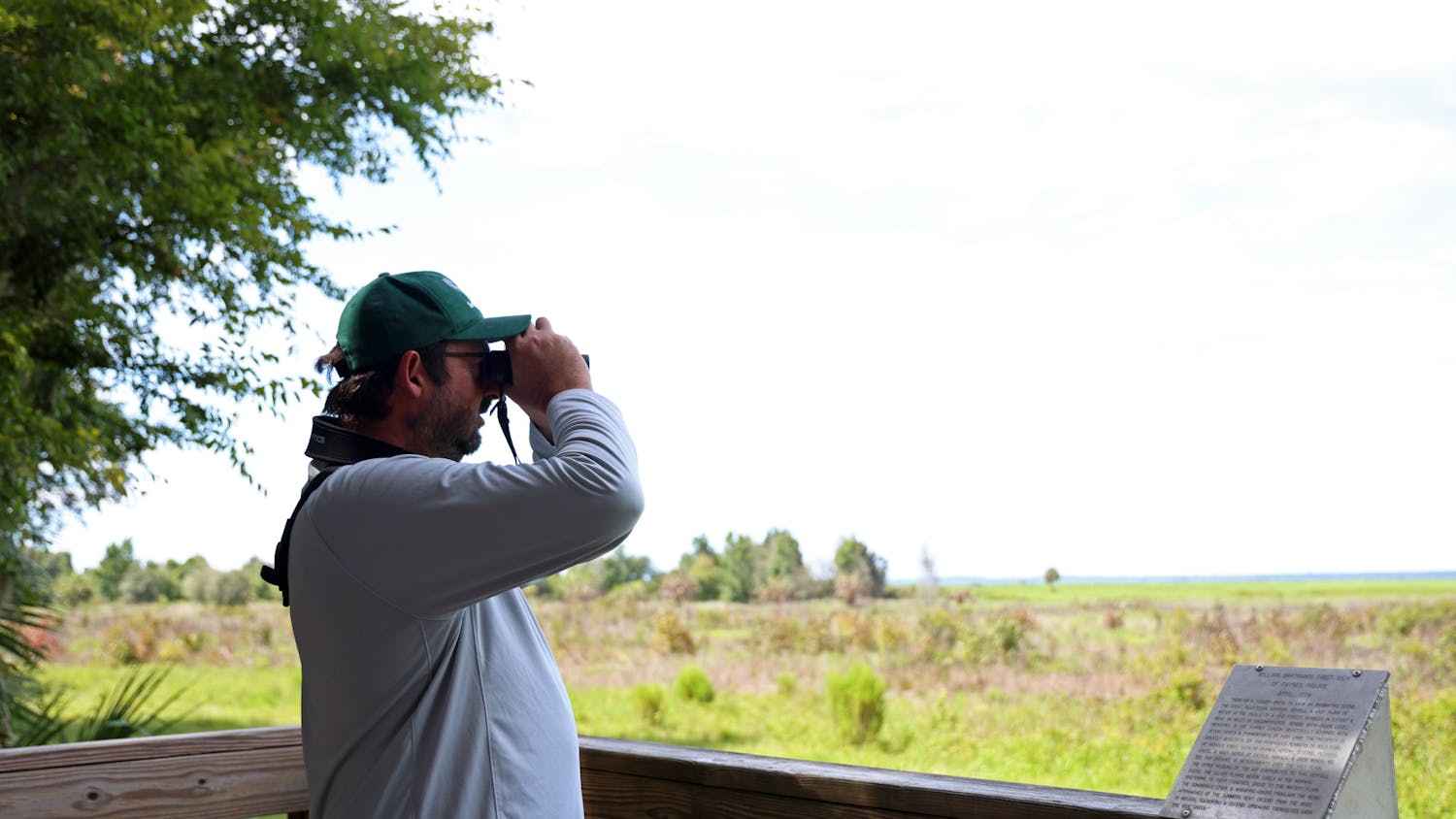Earth, Venus and the sun will align Tuesday in a rare astronomical event that won’t be repeated for more than a century.
A dark spot will be visible moving across the sun as Venus passes directly between it and Earth.
Spectators in the Sunshine State can observe the phenomenon, called a transit, from 6:03 p.m. to 8:26 p.m., depending on location.
Peter Barnes, assistant scientist of astronomy at UF, said the next transit won’t be until 2117.
The reason these transits are so rare, Barnes said, is because Venus’ orbit around the sun is tilted compared to Earth’s orbit.
The UF Department of Astronomy will provide public a free opportunity to view Venus’ transit safely on the east end of Flavet Field.
Francisco Reyes, associate scientist and coordinator of the astronomy event, cautions that observation of the sun without a solar filter can cause permanent damage to eyesight.
According to Peter Nguyen, UF astronomy alumnus, the sun’s brightness could destroy even the optical instruments of the Hubble Space Telescope.
“The rarity is what makes it exciting for me,” Nguyen said. “This will be an insane opportunity for the community.”





